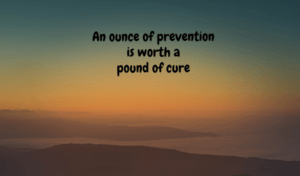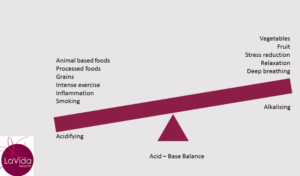The festive season is starting to rev up. For many of us, this time of year seems like one endless dinner, lunch or party. If we aren’t careful, it can be a time of overindulging, late nights and added stress. The result is that instead of gracefully sailing into the New Year we can slide in with a big crash, feeling exhausted, overwhelmed and very “sluggish”.
Note: If you love to overindulge and enjoy the crash then read no further BUT if you would like to start January with your physical and mental health intact then here are my essential tips.
Let’s start with alcohol…
- Get your diary out and have a look at the events coming up. Plan ahead and make a conscious decision about when you’ll have drink. Make sure you plan your alcohol-free days.
- Increase your water intake over the next few weeks…especially on your drinking days. This will prevent dehydration and minimise the after-effects.
- Always start with a non-alcoholic drink…if someone is trying to push an alcoholic drink into your hand just say you are really thirsty and would just like something non-alcoholic first…at least that delays the first drink.
- Try to alternate an alcoholic drink with water or mineral water to slow the rate of drinking and maintain hydration.
- If you can, put the glass down between sips. You are more likely to drink quickly if the glass is in your hand.
- Never get a refill before you have finished your current drink…i.e. always say “no” to a “top up”. This can make a big difference to your total alcohol consumption.
- Remember, an alcoholic drink is not just alcoholic it is also laden with kilojoules so choose lower kilojoule options where possible e.g. light beer, dry white wine, wine spritzer, a weak vodka or Campari with soda and fresh lime.
- Avoid sugary mixers (that includes tonic “water”) in favour of soda water to reduce calorie intake.
- Eat something nutritious before you start drinking. Food in your stomach will slow the absorption of the alcohol.
- Set yourself a cut-off time e.g. no drinks past 10pm. It’s probably easier to remember this than setting yourself a drink limit (which you may not be able to keep track of).
- Remember, health recommendations are no more than 10 standard drinks in a week, none if you are pregnant and technically more than 4 is considered binge drinking. (Most bottles of wine contain approximately 8 standard drinks).
- Offer to serve food, take photos or otherwise help out. It will keep your hands busy.
- Focus on the social and fun aspects of the event. You can still enjoy the company without the alcohol.
- If you do over indulge, make sure you backup the next day with lots of fresh fruit and vegetables (make a smoothie for a big juicy vitamin pill), some extra B vitamins and lots of water.
What about all that tempting food?
It would be very easy to just throw the healthy eating out the door pretty much until the end of January, right? However, if you do that you will most likely be starting February a few kilos heavier and feeling very sluggish, tired and unwell. So, try the following.
- Look at your diary and see what you have coming up. If you plan, in advance, the days on which you are likely to be indulging then you will have more motivation to make healthy food choices on the other days. (Hint: if there are no “healthy” days in your diary, maybe consider saying “no” to a couple of non-essential outings).
- Small servings – think about how much you are about to take and then halve it! You can always come back for seconds IF YOU ARE STILL HUNGRY LATER!
- Be realistic. Don’t deprive yourself of indulgences entirely or you will feel miserable (even if only at subconscious level) and that increases the possibility of “blowing it”.
- Allow yourself a taste of whatever you really desire but make a conscious decision to really taste the food, savour the flavour and texture and enjoy EVERY mouthful. If you are no longer enjoying it then stop eating.
- Don’t over-cater. That way you’ll minimise the amount of food left over. Good food is abundant and readily available in this country so there is no need to overstock the pantry and fridge for “emergencies”. Again, this reduces temptation.
- Freeze leftovers or give people food plates to take with them. You don’t need extra temptation left around after the fun has finished. By the same token, politely refuse any leftovers a host offers to send you home with. (Yes, I know I’ve just contradicted myself).
- Have something healthy and protein-rich before you go to a function. This will make you more able to resist unnecessary temptation.
- Share your dishes. Suggest splitting an entrée or dessert instead of eating the whole thing yourself.
- Have the plum pudding if you want but do you really need the custard AND the ice-cream AND the cream to go with it. i.e. don’t go overboard on the extra sauces and trimmings. You’ll be surprised at how many calories you can save by just cutting down on the extras.
- Don’t forget to eat slowly. Put your cutlery down between mouthfuls and actually take the time to enjoy EACH mouthful. This will allow your stomach the time it needs to send a message to your brain to register that it is full and you are then less likely to overeat.
- Don’t confuse hunger with thirst, especially on warm days. Make sure you drink water to stay hydrated.
- Whenever possible go for salads and steamed vegetables, fresh fruit, lean meats, nuts and wholegrains to boost your vitamins and minerals.
Don’t let this time of year stress you out
Around now I see lots of tired, stressed and exhausted people in my clinic. Christmas can be stressful, busy, lots of fun, sad, depressing, exhausting and more. Some people love it but others hate it. There is often more to fit into your already busy schedule. Finances can be stretched, there are work deadlines and it can feel like everyone wants a piece of you with the added pressure to “catch up before Christmas”. Or maybe this time of year makes you feel a bit lonely or sad. As a naturopath, I recognise the toll this can take on your mood, health and general enjoyment of life. However, there are a few things you can do to help yourself survive the stresses of the silly season.
- Look at your diary and plan some down time. Keep a few nights/days free for rest and relaxation. You’ll need it. If you don’t plan for it, it may not happen and you’ll suffer the consequences later.
- Be realistic about what you can fit in and be kind to yourself. (Personally, I need lots of down time).
- If you are feeling overwhelmed, just sit and quietly breathe deeply for a couple of minutes. Focus on relaxing your neck and shoulder muscles. It is very calming and instantly reduces the sensation of stress.
- Try to fit in some time every day for some laughter, your favourite music or something to help elevate your mood when you are feeling stressed.
- Get a good night’s sleep as often as you can. You don’t want to start the New Year off even more exhausted than you were at the end of the old year.
- Don’t let your exercise routine drop. This is the time of year when you need it more than anything to help burn off the extra calories we tend to consume and to manage your stress levels.
- Take the pressure off yourself. Remember, Christmas is a date on a calendar for religious reasons. Artificial or self-imposed pressures to see people or get things done “by Christmas” just add to your already-stressed life. Plan some activities for January instead if you can.
- Don’t forget the sunscreen and hat. There’s nothing like a good dose of sunburn to spoil your time off.
- If this is a time of year you don’t look forward to, then be kind to yourself and plan some nice activities…a massage perhaps, a pedicure, a movie night, a trip to your favourite café or anything else you can look forward too.
- Volunteer to help out those less fortunate. It’s a deeply rewarding and satisfying activity.
- Try to follow my earlier tips on eating and drinking over the festive season. Eating healthily will help reduce stress levels and maintain your energy.
- Magnesium and extra B vitamins are excellent for helping to cope with fatigue, stress and anxiety. You’ll find them in your leafy greens as well as wholegrains, nuts and seeds but you may need a supplement or even a herbal tonic if your diet is inadequate and you feel you aren’t coping.
- Take some time to reflect on all the good things that have happened this year and appreciate what you have achieved rather than dwelling on the other stuff.
So, there you have it. Lots of tips for surviving and enjoying the festive season. I hope you will take up at least some of my suggestions in order to come out the other side relatively unscathed.
The first step is to have a look at your diary and make sure you’ve blocked out some alcohol-free days and some “me time”.
But if you know the next few weeks are going to be a bit crazy let me help you with some tailored herbal and nutritional support.





